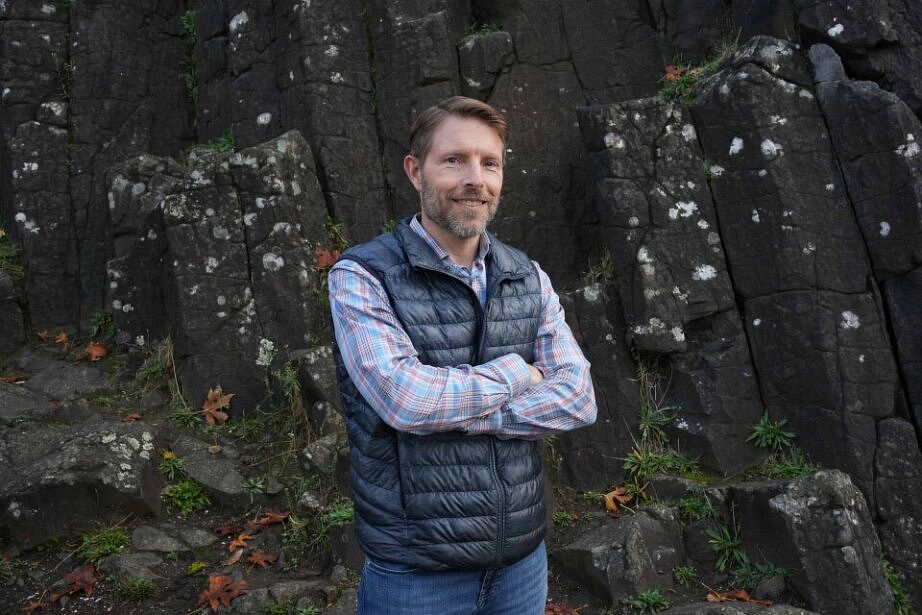
Experiential Learning | Research & Innovation | Community Impact | Career Preparation | Teaching Excellence | 21st Century Liberal Arts | Building Community | Good Vibes | CAS Spotlights | All Stories | Past Issues

Learn Today, Change Tomorrow
DECEMBER 2, 2024
Inside the classroom, the College of Arts and Sciences offers students insightful and engaging perspectives that serve as a foundation for academic inquiry. But our students also go beyond the classroom to apply those concepts in the working world, whether in a lab, at an internship or through a community-based volunteer experience.
CAS provides students with an Experiential Learning Fund to support undergraduate students as they gain real-world experience and prepare for careers or advanced education opportunities after college.
And who knows where experiential learning can take a student in their career? CAS Connection spoke with Tykeson Dean of Arts and Sciences Chris Poulsen about his undergraduate hands-on learning experience—and how that put him on his academic career trajectory.
What was your first experiential learning experience as an undergraduate?
My first experiential learning experience was as part of a Keck Consortium research project in the Tobacco Root Mountains of Montana, near Twin Bridges, Wyoming. I spent several weeks in the summer after my third year in college mapping and sampling Archean metamorphic rocks.
Each day, I hiked several miles into the backcountry, locating outcrops, mapping rock orientations and taking samples. It was glorious.
After the summer, I then conducted geochemical analyses on the samples. The project turned into a senior thesis, “Origin, metamorphic history, and tectonic setting of Archean rocks from the Spuhler Peak Assemblage”, which I both defended at my college and presented at an annual Keck Symposium conference, and I was eventually a co-author on two scientific papers.
How did this experience impact your educational trajectory?
The experience was transformational. Besides having an amazing outdoor experience, I learned that I could do and enjoyed independent research.
The experience both inspired me and gave me the confidence to consider graduate school. I also learned that, while metamorphic rocks are interesting and beautiful, I wanted to study something else and applied to graduate school at Penn State to study paleoclimatology.
What was the most rewarding part of your learning?
Looking back, the most rewarding part of the learning was experiencing the exhilaration and creativity that is at the heart of the scientific endeavor. It was a chance for me to form my own questions and ideas, test them and defend them. It was exciting to be creating new data and knowledge, and to be the expert on that small set of rocks.
Why is experiential learning such a high priority for CAS to provide to students?
Experiential learning—whether through research opportunities, internships, field work, volunteering or a course-based undergraduate research experience (CURE)—provides students the opportunity to apply concepts they've learned in a real-world setting, hone their critical thinking and problem-solving skills, explore career paths and discover their passion, gain confidence and independence, and gain practical experiences that build their resume and employability.
Experiential learning opportunities can be an important step in preparing students for life after graduation.
How did the experiences set you up for success after graduation (undergrad and grad)?
The experience led me to graduate school and then to a wonderful career as a professor of earth sciences, which has allowed me to continue to pursue independent scientific research and to work with and train students in research.
Want to help more CAS students participate in life-changing experiential learning opportunities? Support our Experiential Learning Fund.
